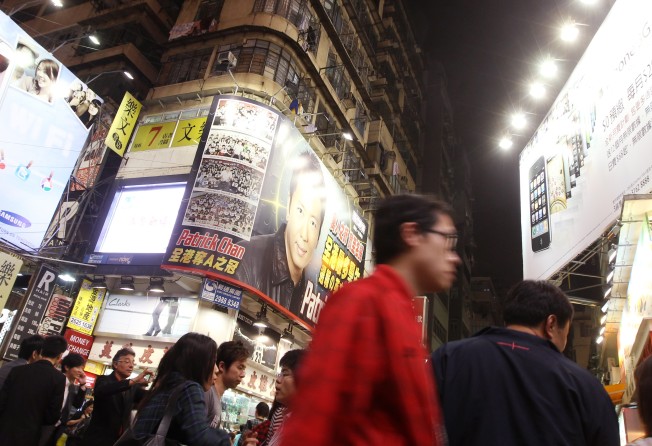Letters to the Editor, January 4, 2018

Light pollution casts shadow on reputation
The city of Hong Kong, with its tall buildings and teeming streets, continues to be a popular destination with tourists from around the world. However, we face a long-term problem that has still not been addressed: the pollution caused by excessive outdoor lighting.
It is unlikely that this problem will be resolved in the near future (“Blight of light: why Hong Kong’s neon haze isn’t going away soon”, December 23). I agree with those who say that regulations are needed for outdoor lighting, for the sake of the health of citizens as well as the ecosystem.
Ours is a densely populated city, and so high-rise buildings are packed close together. Large and brightly lit advertising signboards on their exterior walls can seriously disrupt the sleep of residents in nearby flats.
There is no point having these boards staying lit overnight, as hardly anyone is out in the streets to look at them.
So there should be a time limit, beyond which they must be switched off. Apart from helping nearby residents, this would also save energy.
The government needs to see protecting public health as a priority. It is high time it introduced regulations which would place restrictions on outdoor lighting and help to reduce the levels of light pollution.
Zoe Liu Sze-yui, Kwai Chung
Shenzhen has left ‘world city’ in the dust
We always love to write about how Hong Kong is so much better than the mainland and that they are a bit backward.
However, just across the border, Shenzhen has become the first mainland city where all public transport buses are 100 per cent electric-powered.
Maybe in Asia’s world-class city, we can follow this example and keep up with our neighbour just across the border and breathe some cleaner air at street level. And while we are at it, let’s make all our taxis electric as well; also, maybe one day we will see an end to the continuous smoke being belched out by the Star Ferry vessels.
Jeffry Kuperus, Clear Water Bay
Police unit for animal cruelty a great idea
I agree with experts who have called for the setting up of a police unit in Hong Kong to deal with the the rising number of animal cruelty cases.
I would also like to see stiffer punishment for those found guilty of abusing animals, because at the moment the courts are too lenient.
In some cases you read about, the perpetrators were extremely violent. Those guilty of such behaviour should face longer custodial sentences.
The rights of animals should be protected in society, and this kind of police unit can make a big difference. After all, animals are an integral part of our society and it reflects badly on that society if they are abused.
The government should heed the growing calls for this animal police squad and should set it up as soon as possible.
There is clearly a need for animals to be given this kind of protection. And heavier punishments can act as a deterrent to would-be abusers.
Caroline Wong, Kwai Chung
Parents have a role in lifting load off pupils
I am concerned about the health risks that our primary school pupils face from having to carry heavy schoolbags on their backs every day.
A study last year found that 80 per cent of young students in Hong Kong were having to carry these bags and this could lead to spinal injuries or defects.
I support the suggestion that all local primary schools should have enough lockers for each pupil, so they only have to carry the books that they will need for doing their homework in the evening. And schools should also focus on expanding e-learning and the use of online teaching resources.
It may take time for the Education Bureau to approve and implement such a policy. So parents should be looking at ways to lighten the load now.
They should choose multi-space bags that make it possible to distribute the weight, which will put less pressure on the backs of youngsters.
Also the bag should have thick, padded shoulder straps to make carrying it more comfortable, even when it contains a lot of heavy books.
Oscar Au Yeung, Po Lam
Junk food ban in schools not the way to go
I refer to the article on calls for a ban on junk food in schools (“Should schools ban vending machines, asks worried Hong Kong parent”, December 30).
I accept that snacks offered by vending machines are high in salt, sugar and saturated fat, which are bad for health. However, I would not back moves to ban this kind of machine from schools. I believe pupils have to be given the freedom to make their own choices on what to eat.
What schools should do instead is strengthen education on nutrition, so that youngsters are better informed about junk food and the unhealthy ingredients it may contain. They can also be encouraged to focus on exercising more and making healthy choices for meals.
Schools could even organise a healthy food day, when pupils are shown how to prepare nutritious and tasty snacks. Hopefully, they would then get into the habit of eating healthy instead of heading straight to the vending machines when hungry.
Kitty Kock Pui-kei, Kwai Chung